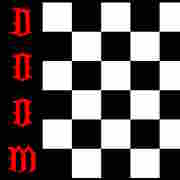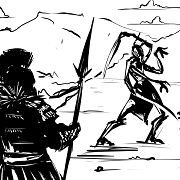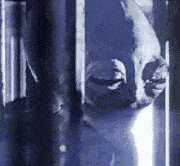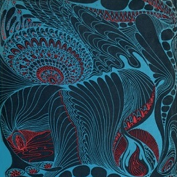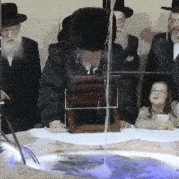|
BigWeirdSashimi posted:This is white noise retail worker erasure
|
|
|
|

|
| # ? May 17, 2024 17:43 |
Mantis42 posted:https://x.com/Athenion3/status/1785110865479344346 I mean yeah, they should know you're not allowed to protest for non right wing causes in the US.
|
|
|
|
|
I don't know if we need a C-SPAM media literacy thread, but I'll make this clear, if only because it's annoying seeing people who say dumb poo poo like "What's the connection between Galician nationalism and Zionism?" quickly jump in with their opinions . (Spoiler: Theodor Herzl, in his own words) So, let's talk about Israel's Public Diplomacy, and the weaponization of history to protect the State of Israel. Zodium posted:should ff survive his sixer without drawing the eye of fd, and wants to make the case that zionists are deliberately using anti-semitic tropes to engender anti-semitic sentiment, he may do so explicitly and in usual verbose form. Zodium posted:no it isn't. it's actually easy: zionists are deliberately using anti-semitic tropes to engender anti-semitic sentiment. I'll start with the two most recent works in the Canadian context, Jewish Students’ Experiences in the Era of BDS: Exploring Jewish Lived Experience and Antisemitism on Canadian Campuses, by Kenedy (York) and Antisemitism, Anti-Israelism, and Canada in Context by Brym and Lenton (U of T). There is a deliberate effort, in Canada, to confuse the language of antisemitism, in Canada, in support of the State of Israel: "Antisemitism is based on discrimination and is expressed as a religious hatred toward Jews and by accusing them of conspiring to harm humanity through conspiracies. The new antisemitism highlights the post-1948 delegitimization and demonization of Israel as a Jewish state (IHRA, 2016; Wistrich 2010, 2013). With the creation of the Jewish state in 1948 and the Boycott, Divestment, and Sanctions movement, Wistrich (2010, 2013) clearly argues that the specific and focused delegitimization and demonization of Israel as a Jewish state is new. Keeping in mind that Israel is singled out and the focus of this movement. Countries such as North Korea, China, Myanmar, and other nations with problematic human rights records are usually ignored by the BDS movement." This, is, obviously, a problem.   When we glance at their research, what we actually see is evidence of a complex and manipulative narrative being woven by a state actor and a network of political entities, in relation to Israel's role on the global stage. Frankly, the research being offered to suggest an upswing in antisemitism in Canada reveals that the Zionist movement and the Israeli government might be leveraging antisemitic tropes, paradoxically interfering in Canadian politics, and then characterizing “the belief that Israel interferes in Canadian politics” as an antisemitic conspiracy theory, for instance, as part of a strategy that apparently aims to stir up antisemitic sentiment for political and strategic gains.  This strategy, if true, would represent a profound and cynical manipulation of antisemitism's tragic history on behalf of the State of Israel. It suggests an exploitation of the deep-seated fears and historical prejudices against Jews to foster a sense of siege and solidarity among supporters of Israel, thereby solidifying internal and diaspora allegiance to the state’s policies. The interest taken in the Jewish community in Canada was almost entirely focused on their support for Israel, rather than their actual wellbeing, and the reported instances of antisemitism, explicitly, were not related to prejudice against them, which the report admits were practically non-existent, but rather criticism of Israel. This approach, conflating criticism of Israel with antisemitism, deliberately obscures legitimate discourse around the state's actions and policies.   This was recorded as an antisemitic belief in their data This was recorded as an antisemitic belief in their data  Using antisemitism strategically, the dimensions of which we will get to in a moment, involves an irony: historically, Jews have been the victims of actual, real deal, hatred, which culminated in the horrors of the Holocaust. To repurpose antisemitic tropes for statecraft and diplomacy would not only trivialize these historical sufferings but calls into question the nature of the struggle against antisemitism today. It risks reinforcing the same stereotypes that have fueled centuries of discrimination, violence, and murder. When done in defence of discrimination, violence, and murder in Palestine, it is unconscionable. The deployment of antisemitic narratives can serve as a deflective tool, shifting focus from substantive policy critiques to issues of identity and survival. It effectively places Israel’s governmental policies beyond reproach for some, as any criticism risks being labeled as antisemitic, thus stifling open and necessary debate about the future of peace and security in the region.   This was also recorded as an antisemitic belief in their data This was also recorded as an antisemitic belief in their data  Moreover, the reasons for it are laid bare. Drawing connections between historical European antisemitism and the State of Israel is considered part of Israel's public diplomacy. Miriyam Aouragh says as much in Hasbara 2.0: Israel’s Public Diplomacy in the Digital Age. Specifically, every criticism of Israel must have some sort of historical antecedent for the messaging that criticism of Israel is a continuation of the same to have currency. Therefore, Israel deliberately and specifically invokes any historical trope they can in their defence. I've already gone over how this was discussed within the Israeli government in Operation Cast Thy Bread: poisoning wells was deemed the most suitable form of biological warfare because any evidence of it and discussion at the UN could be dismissed for this reason. Well, Aouragh goes further in identifying parallelisms that Israel can use to obfuscate their actual actions and policies. The State of Israel's public diplomacy points to a strategy that is ironic, and uses irony to achieve foreign policy objectives. The central irony, is that Israel — a nation that rose from the ashes of the Holocaust and claims to be a symbol of refuge and resurgence for Jewish people, (which it asserts collective ownership over) — can be seen, daily, to engage in practices that mirror those antisemitic myths that once served to justify Jewish persecution. Parenthetically, the State of Israel itself claims dual loyalty exists, as a matter of foreign policy, which leads to an often abusive relationship with the diaspora. Israel demands that Canadian Jewish people identify with the state of Israel and defend its interests, per Brym and Lenton. To the point where pressure for the the changing definition of "anti-semitism" in Canada was the result of the Second Intifada. That was a pivotal moment, where even many Canadian Jews began opposing Israel's policy. Israel appealed to Jewish Canadian organizations and applied maximal pressure in response. This culminated in a hostile takeover of the central body of Canadian Jewish advocacy, led by Canadians that made Aliyah to Israel, which promptly changed definitions to down-play actual hatred in Canada to almost exclusively focus on Israel, so that even Canadian Jewish opposition to Israeli policy is recorded as evidence of antisemitism. This is where there was a marked uptick in claiming Israel was the victim of "Blood Libel" in the Canadian Jewish press, something that had basically be unknown to that point. There is a glaring contradiction in politics like this: the State of Israel is invoking the spectre of historical antisemitism to defend contemporary policies, thereby blurring the line between legitimate statecraft and the weaponization of history. This contradiction becomes particularly stark in the context of criticisms of Israeli policies regarding Palestinians. The reported instances of antisemitism, which are explicitly stated to be non-prejudicial and rather critical of Israel, are reframed as discriminatory acts against Jews. By presenting actions that invite comparisons to antisemitic tropes as a shield against criticism, there is an attempt to create a rhetorical fortress around the State of Israel. In this fortress, any stone thrown in the form of critique is not only deflected but also labeled as a new stone of antisemitism. It is a sophisticated narrative device: paint the new criticism with the brush of the old hatred, and thus, disarm the critic. But let's speak plainly: noticing patterns and pointing out contradictions is not an act of hatred. I realize that's an "alt right meme", but, if noticing things is hated, and noticing noticing things is an act of hatred, what do you want to do here? It is an engagement with the State of Israel's public diplomacy and, in a roundabout way, defending actual historical truth. Take well poisoning: How many people jumping all over that know a loving thing about the history, either as an antisemitic narrative in medieval Europe, or the actual history of biological warfare in Palestine, in 1948? I know and was clear, what I was talking about, and the people accusing me of being antisemitic didn't. Just a thought. So far as I know, nobody has bothered to address that. Israeli officials, at the time this came to light, both in '48 and in the 2010's, knew it would be compared to the historical episodes, and banked on it in their denial at the United Nations and current denial of Operation Cast Thy Bread today. This is what Israel does, this is how Israeli statecraft works. The diaspora is not an extension of Israel, Israel utilizes the, often unwitting, unwilling, diaspora for their own ends. The diaspora's history, similarly, is deployed by the state of Israel. This should not be a revelation to anyone paying attention. To point out that irony, uncomfortable as it may be, is apparent in this scenario is not to demean the gravity of historical antisemitism, but to demand a separation between the fight against real hatred and the manipulation of that fight to serve other ends. The strategy of conflating criticism with antisemitism seems designed to do two things: first, to create a bulwark against the mounting disapproval of Israel's policies, particularly those regarding Palestine. Second, and perhaps more insidiously, it seems aimed at preserving a monolithic narrative that stifles intra-community dialogue and mutes divergent Jewish voices, including those within Israel who may not align with the government's stance. Winstanley, Weaponising Anti-Semitism: How the Israel Lobby Brought Down Jeremy Corbyn (2023) Foxman, The Deadliest Lies: The Israel Lobby and the Myth of Jewish Control (2007) King, The Pro-Israel Lobby in Europe: The Politics of Religion and Christian Zionism in the European Union (2016) "Explaining the Occupation: Israeli Hasbara and the Occupied Territories" , Goodman, Journal of Israeli History, #1, 36 Smith, Big Israel: How Israel’s Lobby Moves America, (2016). "Jewish and Contemporary Origins Of Israeli 'Hasbara'", Schleifer, Jewish Political Studies Review, #1-2, 15, Findley, They Dare to Speak Out: People and Institutions Confront Israel's Lobby (1989) "Public Diplomacy in Army Boots- the Chronic Failure of Israeli Hasbara" - Hadari & Turgeman, Israel Affairs, #3, 24, "Why Israel Lost the Hasbara War" - Shoval & Zalman, Israel Journal of Foreign Affairs, #2, 1, WUJS (World Union of Jewish Students), Hasbara Handbook: Defending Israel on Campus (2002). DJJIB-DJDCT has issued a correction as of 04:51 on Apr 30, 2024 |
|
|
|

|
|
|
|
DJJIB-DJDCT posted:I don't know if we need a C-SPAM media literacy thread, but I'll make this clear, if only because it's annoying seeing people who say dumb poo poo like "What's the connection between Galician nationalism and Zionism?" quickly jump in with their opinions . (Spoiler: Theodor Herzl, in his own words) So, let's talk about Israel's Public Diplomacy, and the weaponization of history to protect the State of Israel.
|
|
|
|
|
|
|
|
 Well, that sure is a response to what you posted. DTI DTA DTTZE
|
|
|
|
DJJIB-DJDCT posted:I don't know if we need a C-SPAM media literacy thread, but I'll make this clear, if only because it's annoying seeing people who say dumb poo poo like "What's the connection between Galician nationalism and Zionism?" quickly jump in with their opinions . (Spoiler: Theodor Herzl, in his own words) So, let's talk about Israel's Public Diplomacy, and the weaponization of history to protect the State of Israel. you already know most of this thread cant read poo poo
|
|
|
|
|
|
|
|
emgeejay posted:https://twitter.com/simonhbutler/status/1785007009361744071?s=61&t=0u0iPLgsrw9rb7UXErdBQA this fellow does not seem all there
|
|
|
|
emgeejay posted:https://twitter.com/simonhbutler/status/1785007009361744071?s=61&t=0u0iPLgsrw9rb7UXErdBQA this dude definitely HAS melted...
|
|
|
|
The whole colonial culture really seems designed to foster malignant narcissism on top of everything else. Even moreso than regular liberal capitalist alienation. Turning everyone into little Hapsburgs.
|
|
|
|
emgeejay posted:https://twitter.com/simonhbutler/status/1785007009361744071?s=61&t=0u0iPLgsrw9rb7UXErdBQA Simon, dude, it's time to give up and start shaving your skull
|
|
|
|
Ghost Leviathan posted:…colonial culture …malignant narcissism... Turning everyone into little Hapsburgs. Will the slings arrows never cease? I wish it turned everyone into little Hapsburgs.
|
|
|
|
Ghost Leviathan posted:The whole colonial culture really seems designed to foster malignant narcissism on top of everything else. Even moreso than regular liberal capitalist alienation. Turning everyone into little Hapsburgs. being a settler in basically any context or time or even just being tacitly supportive of them is a proven way to speedrun turning a human into a completely dull-eyed monster. Another reason Israel is particularly obnoxious about it is that all this open evil and land theft is happening in an area roughly the size of New Jersey. It's a little hard to not think about a distant frontier where the natives are being abused in some abstract way that doesn't affect you when the colonization is happening often within a distance that's less further away than many Americans' loving daily commute. You have to embrace the evil. There's no shield of distance from it for plausible deniability.
|
|
|
|
|
|
|
|
DJJIB-DJDCT posted:I don't know if we need a C-SPAM media literacy thread, but I'll make this clear, if only because it's annoying seeing people who say dumb poo poo like "What's the connection between Galician nationalism and Zionism?" quickly jump in with their opinions . (Spoiler: Theodor Herzl, in his own words) So, let's talk about Israel's Public Diplomacy, and the weaponization of history to protect the State of Israel. 
|
|
|
|
gotta go with the kids on this one
|
|
|
|
ff, are you ever tempted to drop a paragraph of lorem ipsum in the middle to see if anyone notices?
|
|
|
|
oh thats actually him. lmao
|
|
|
|
|
|
|
|
the posters are addicted to tweet
|
|
|
|
DJJIB-DJDCT posted:I don't know if we need a C-SPAM media literacy thread, but I'll make this clear, if only because it's annoying seeing people who say dumb poo poo like "What's the connection between Galician nationalism and Zionism?" quickly jump in with their opinions . (Spoiler: Theodor Herzl, in his own words) So, let's talk about Israel's Public Diplomacy, and the weaponization of history to protect the State of Israel. 
|
|
|
|
he got the gpt5 chip installed
|
|
|
|
|
DJJIB-DJDCT posted:I don't know if we need a C-SPAM media literacy thread, but I'll make this clear, if only because it's annoying seeing people who say dumb poo poo like "What's the connection between Galician nationalism and Zionism?" quickly jump in with their opinions . (Spoiler: Theodor Herzl, in his own words) So, let's talk about Israel's Public Diplomacy, and the weaponization of history to protect the State of Israel.
|
|
|
|
Ghost Leviathan posted:The whole colonial culture really seems designed to foster malignant narcissism on top of everything else. Even moreso than regular liberal capitalist alienation. Turning everyone into little Hapsburgs. this seems a little on the nose
|
|
|
|
Bishyaler posted:Rats make great pets, super intelligent and affectionate. Yeah, one of my best friends growing up had a bunch and they were super nice. https://twitter.com/rafaelshimunov/status/1785157840341967248
|
|
|
|
Cerebral Bore posted:this seems a little on the nose Talk about taking it in the chin
|
|
|
|
Butter Activities posted:Talk about taking it in the chin lol nice
|
|
|
|
DJJIB-DJDCT posted:I don't know if we need a C-SPAM media literacy thread, but I'll make this clear, if only because it's annoying seeing people who say dumb poo poo like "What's the connection between Galician nationalism and Zionism?" quickly jump in with their opinions . (Spoiler: Theodor Herzl, in his own words) So, let's talk about Israel's Public Diplomacy, and the weaponization of history to protect the State of Israel. I’m imagining trying to explain this to a lib and then having them immediately call me an anti-semite afterwards. Therefore,
|
|
|
|
https://x.com/peoplesforumnyc/status/1785169344235794917?s=46 Columbia students occupying Hamilton Hall, which they took over too in 68
|
|
|
|
|
|
|
|
I've had a whole obnoxious thing going about how the western political classes are clearly culturally if not literally inbred and isolated enough they become freaky malformed weirdos who have no concept of how the real world works and cause mutual bewilderment and horror when they stumble out of their usually carefully shepherded caves and rampage around the land. Like Trump thread posters.
|
|
|
|
FrancisFukyomama posted:https://x.com/peoplesforumnyc/status/1785169344235794917?s=46 this rules
|
|
|
|
Ghost Leviathan posted:I've had a whole obnoxious thing going about how the western political classes are clearly culturally if not literally inbred and isolated enough they become freaky malformed weirdos who have no concept of how the real world works and cause mutual bewilderment and horror when they stumble out of their usually carefully shepherded caves and rampage around the land. Like Trump thread posters. I mean the UK elite is this to a tee. There was a really good trashfuture interview about it with some Marxist theorist on the difference between the UK and US bourgeois and managers of empire
|
|
|
|
E2M2 posted:Pretty sure it was a fabrication about the baby getting cut out of mother's womb by Hamas, but I can't find a source to refute it and most Google results are from days after Oct 7th just repeating the lies. I remember seeing that Israeli news pundit show where one of them says it was a fabrication but I wouldn't even know where to look. It wasn't a fabrication, they were just describing what the IDF did to women in Sabra. https://en.wikipedia.org/wiki/Sabra_and_Shatila_massacre
|
|
|
|
https://x.com/NationalSJP/status/1785182718180900892
|
|
|
|
Butter Activities posted:I mean the UK elite is this to a tee. There was a really good trashfuture interview about it with some Marxist theorist on the difference between the UK and US bourgeois and managers of empire I'd love to see that one. The UK of course are the iconic model for a hosed up elite but I'd be interested in seeing comparisons. Getting off topic here probably, lemme know if there's a better thread for this.
|
|
|
|

|
| # ? May 17, 2024 17:43 |
|
|
|
|














